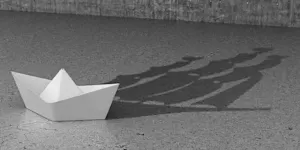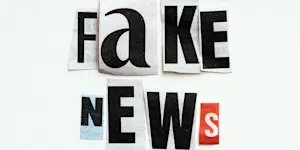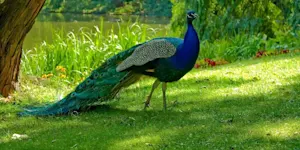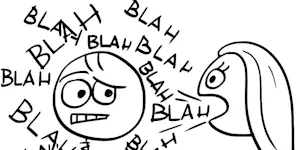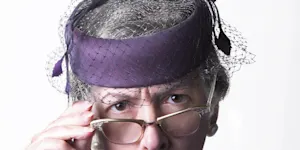What Makes This Word Tick
"Murky" conjures images of shadowy depths and hidden mysteries. It describes anything that lacks clarity or is clouded, whether it's literal, like a pond's muddy waters, or metaphorical, like a confusing situation. Its essence is in the fogginess and obscurity that invite both intrigue and caution.
If Murky Were a Person…
Imagine Murky as that neighbor who always seems to have a secret — they're polite but elusive, with a twinkle in their eye that makes you wonder what stories they're not telling. They'd dress in shades of gray and have a penchant for noir films and mystery novels.
How This Word Has Changed Over Time
Originally from the Middle English "mirke," which meant dark or gloomy, "murky" once strictly related to actual physical darkness. Over time, it has expanded to describe not just literal gloom but figurative confusion or complexity, a fascinating evolution.
Old Sayings and Proverbs That Use Murky
While "murky" itself doesn't appear in traditional proverbs, the idea echoes in sayings like "still waters run deep," suggesting that beneath a calm or unclear surface, there may be much to discover.
Surprising Facts About Murky
Did you know that "murky" can describe weather conditions in the UK? It's often used to characterize a drizzly, overcast day where the sky blends into the ground, creating a seamless wash of grays that’s oddly comforting.
Out and About With This Word
If you’re on a murky adventure, expect a day hiking through fog-laden forests with dim lighting. Perfect for those who adore the mystique of a path half-seen, inviting brave explorers to venture where the unknown beckons.
Pop Culture Moments Where Murky Was Used
The word "murky" finds a home in detective shows and crime novels, where it sets the scene for a convoluted plot full of unexpected twists and turns. It's the kind of word that Alfred Hitchcock would appreciate.
The Word in Literature
"Murky" often appears in Gothic literature, adding layers of atmosphere to haunting tales. Think of novels by Edgar Allan Poe or Mary Shelley, where murkiness surrounds, creating suspense and engaging readers' imaginations.
Moments in History with Murky
Imagine the signing of a secretive treaty or the behind-the-scenes negotiations of political alliances; these were murky in their lack of clarity and the intrigues they concealed. The murk of history is filled with such shadowy deals!
This Word Around the World
In German, "dunkel" might capture the spirit of murkiness when describing dark and unclear situations. Across languages, every culture has its way of referencing the unclear and the enigmatic, each with its own linguistic flair.
Where Does It Come From?
Rooted in Old Norse and Middle English, "murky" shares lineage with the word "murk," tracing back to "myrkr" in Old Norse. This history imbues it with the weight of centuries of obscurity and mystery.
How People Misuse This Word
Sometimes, people use "murky" to describe something merely unpleasant or unappealing. They might say "murky" when they mean "muddy" or "messy," missing its deeper connotations of complexity and obfuscation.
Words It’s Often Confused With
Muddy: Often used interchangeably, but "muddy" is more about literal messiness rather than metaphorical obscurity.
Vague: While both suggest lack of clarity, "vague" lacks the dimension of deception or intrigue that "murky" can imply.
Additional Synonyms and Antonyms
Synonyms for murky include "cloudy," "dim," and "obscure," while antonyms would be "clear," "bright," and "transparent."
Want to Try It Out in a Sentence?
"After the debate, the politician's intentions remained murky, leaving voters unsure of where she truly stood."
Enjoy this exploration of "murky," a word that keeps us all guessing and imagining beyond what we can see!






